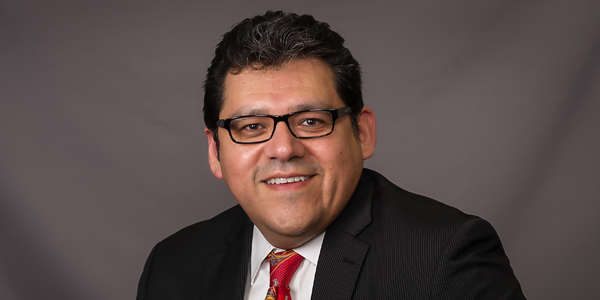
The next twelve months will feature a whirlwind of leadership changes in our region as we usher in our new city council district representatives, elect a new County Judge for the first time in 13 years, welcome a new Chancellor to The University of Texas, a new President to The University of Texas at Austin, and a new Austin Independent School District Superintendent, not to mention the numerous leadership changes at the state level.
In addition, another 115 participants will join the Leadership Austin family as we seat the 36th Essential class on September 5th and the 8th Emerge class on September 26th—all of whom will join the more than 2,100 Leadership Austin alumni working to make a difference in our community.
For 35 years Leadership Austin has been working to develop skills, explore issues, and connect community leaders. Our organization believes this year will be one of the most significant leadership shifts in our community in decades. As the 2014-15 Board Chair, I am honored to serve alongside our outstanding board members, staff, and you—the Leadership Austin alumni—who are working together to improve the lives of those who choose to live, work, shop, and play here. I wanted to share a few thoughts on how we can continue to be an inclusive region during this time of change.
When you last made a hiring decision, did the final candidates have personal experiences and career development which mirrored yours?
When you last made a sale, did the buyer look a lot like you?
Do nearly all of your friends think the way you do about the President of the United States?
When is the last time you experienced a holiday or life-cycle event for a friend (such as a confirmation, wedding, quinceañera, funeral, bar mitzvah, or Ramadan feast) which was a first for you?
If you have “yes” answers to the first three questions, and can’t quickly answer the fourth, you are not alone. For many of us, our world becomes too easily circumscribed by people with whom we are comfortable.
This year will be one of the most significant leadership shifts in our community in decades.The trouble is, no matter who we are, most of the world is not like us. We’re limiting our business intelligence, our sales capability, and the richness of our lives. It’s not a choice; it’s a habit.
Great civic leaders pull together individuals from different groups and look for opportunities to advance the greatest number of interests. We have an abundance of the other kind—those who say they advance “our” cause by limiting access that other people ought to have for themselves.
If you look at global brands, you see tremendous success by those who can do business successfully in any culture and see cultural diversity as a strength and opportunity. Closer to home, in Central Texas, we have seen tremendous buying power grow among Hispanics and Asians. What’s more, Austin is ranked as the fastest growing community among those aged 55 to 64 and the third fastest growing community for those over 65.
Economics tells us we are rational beings who know how to maximize our economic welfare. If financial success means opening our businesses, personal networks, and life experiences—our minds—to other viewpoints, we will get it right.
My experience tells me that’s not the case. We have a strong propensity to flock together with people whose ideas and experiences most accurately mirror our own. We are a diverse community working toward being more inclusive.
This is why Leadership Austin puts such a high premium on helping leaders become more successful at moving from a one-track mode to operating in an increasingly diverse community. We believe if the Greater Austin area is to grow into its full potential as one of the greatest cities in the United States, we will need the combined efforts of all citizens. Austin must work for everyone and be a place that welcomes the efforts of everyone. We cannot afford to leave any individual or community on the sidelines of our regional economy.
We are a diverse community working toward being more inclusive.If you think, this is hype, think about how we have come as far as we have throughout our history. Locally, our growth industry (high tech) operates throughout the world. Sematech and MCC brought the world of global computing to our front door. We bring together scholars from all over the world at The University of Texas at Austin. St. Edward’s University sends our children to study throughout the world and welcomes sons and daughters of migrant farmworkers to college. Some of our high schools are sending kids to China during Spring Break. Our children tend to be much more open to others than previous generations.
You may not know how to go global—to develop friendships and networks that can be mutually beneficial. You may feel uncomfortable and worried you will offend someone culturally. This is natural and it’s part of growing as a leader. To start an inclusive habit, invite someone to lunch who looks, speaks, or thinks differently than you.
I encourage each of my fellow Leadership Austin alumni to consider his or her role in creating the inclusive city of our future. You are helping people from all over the world feel at home in Austin, Texas. We must have the reputation around the world that Austin is different, that it has an open mind, an outstretched hand and a friendly smile. You don’t have to leave the region to go global, but we won’t continue to be the go-to region if we don’t recognize our global community and the need to move Austin from recognizing diversity to acting more inclusive.
Geronimo M. Rodriguez Jr. is the 2014-15 Chair of the Leadership Austin Board of Directors and Vice-President of Diversity and Community Outreach with Seton Healthcare Family.
